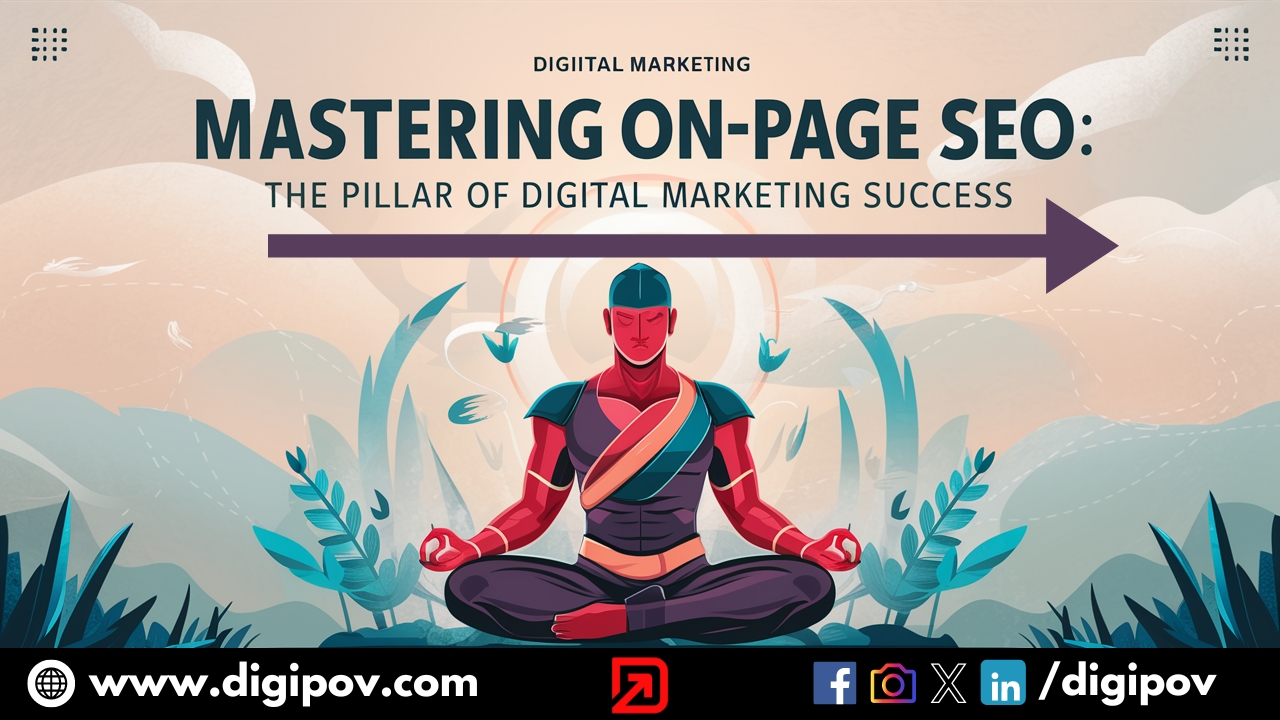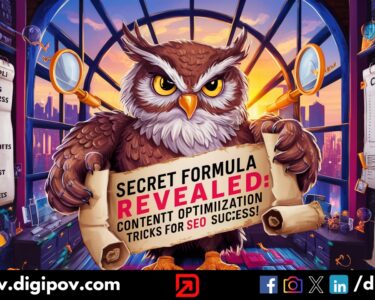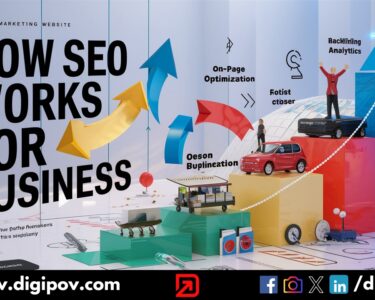The demand for SEO and online advertising specialists is at an all – time high as everything has gone the digital way. The demand for an efficient SEO ads specialists has continued to be on the increase as more and more companies are found to go for broke in their bid to see to it that their online presence and visibility solidly get actualized and upheld. Here, we will delve into this exciting journey to know all about seo ads specialists, from the basics of being a beginner to being an advanced skilled SEO ads specialist, considering the change of requirements for the same owing to development in technology and competition in this field.
Understanding the Fundamentals
1. Mastering Concepts of SEO: Mastery of foundational SEO concepts in relation to the words used in searching, on-site optimization, off-site optimization, and technical SEO. Understanding some of the major search engine algorithm updates that do exist, including for Google, which always changes algorithm updates.
Career Planning in Online Advertising:
1.Grasp the Basics of SEO: Start by understanding the fundamental concepts of SEO, including keywords, on-page optimization, off-page optimization, and technical SEO. Familiarize yourself with search engine algorithms and updates, such as Google’s ever-evolving algorithm changes.
2.Learn the Principles of Online Advertising: Gain knowledge of online advertising platforms, particularly Google Ads and Bing Ads. Understand how pay-per-click (PPC) advertising works, including bidding strategies, ad formats, and campaign optimization techniques.
3.Edging Up in Digital Marketing: Things are changing all over for whatever can be digitized, including how to market digitally.
You must be updated with the current trends in best practices in online advertising, SEO, and other marketing tools through reading blogs, listening to podcasts, and industry-specific publication and professional networking.
Building Essential Skills
1. Keyword Research: Get to learn how to conduct keyword research in order to identify high-value search terms relevant to the target audience.
Google Keyword Planner, SEMrush, Ahrefs: The research of keywords, search volume, levels of competition, keyword changes, trends, and looking for new keywords are done by those tools.
2. Content Writing: Excellent at writing quality, engaging, and SEO-friendly content, which includes understanding the value of writing content resonating with a user’s intent, buffer aggregation qualities, and smartly tagging the targeted keywords.
3. Analytics and Interpretation of Data: You must learn to have an interdisciplinary view to make the interpretation of respective data across respective analytics platforms included but not enclosed to Google Analytics and Google Search Console . All important metrics, starting from website traffic to user behavior and the conversion rate, need to be interpreted to put to use in a way by which the use of effective optimization of SEO and advertising campaign will take place.
4. Learn Ad Copywriting: Master the art of ad copywriting to spike out the most compelling ad-copy and meta-descriptions, ensuring you have maximum clicks and conversions. Master the craft of persuasion and learn how to persuade in a call to advertisement.
Embracing Technological Advancements in SEO
1. AI and Machine Learning: With advances in AI and machine learning, there is a tectonic shift in the world of SEO. Take, for example, a sneak preview of how algorithms such as Google’s RankBrain are attempting to understand the intent and context of the user. Find out which apps and platforms, run by AI, have taken over new bargains on content automation, keyword research, and SEO analysis.
2. Voice optimization: Developments spurred for voice-enabled devices and virtual assistants Siri, Alexa, and Google Assistant , of course, are other factors in making proper voice SEO. Research how users are searching with their voice queries in a different manner than the traditional text-based way of searching. Make sure your keyword strategy and content optimization are in line with visibility in both natural language queries and conversational search patterns.
3. Mobile Optimization: It commands the share of online traffic that runs on mobile devices. It’s a statement that’s now more true than ever. Mobile optimization really needs to stay at the forefront of every marketer’s mind. It requires ensuring that each website is designed in a way that it loads quickly and provides a responsive—most likely smarter—user experience on most devices. Keep mobile-friendly design in mind and use tools like Google’s Mobile-Friendly Test for diagnosis in order to fix usability issues.
Mastering Advanced Strategies
1. Technical On-Page SEO Optimization: It encompasses the issues of the website structure, site speed optimization, mobile-friendliness, implementation of schema markup, and all other technical SEO questions. Make sure it’s not a technical issue that interferes with a search engine’s web crawl or may lead to a downfall in indexing.
2. Local SEO Strategy: Describe how the local SEO strategy empowers vendors to be found in local search results. It includes optimization of Google Business Listings, Local Citations, and customer reviews to attract and earn business within the locality.
3. Advanced PPC Strategies: Run through advanced PPC strategies, including remarketing, audience targeting, ad extensions, and automation through bidding. Keep testing high over the campaign, look over it, and introduce any such changes which are required to keep your ad constantly improving over time for the best ROI.
4. CRO (Conversion Rate Optimization): It covers how to master the principles to be used while increasing landing page and conversion funnel efficiency, doing A/B testing, working with user behavior analysis, and making proper optimizations leading to an enhancement in the conversion ratio and related lead or sales volumes.
Adapting to Evolving SEO Requirements and Specialist Skills
1. User Experience (UX) Optimization: It mostly aims at the centrality of user experience to SEO and dwells on the tactics of UX optimization in the same condition. Establish a logical approach, reduce the loading time, and lead to captivating content that keeps the user impressed, leading to an increase in satisfaction and a decline in the rate of users leaving the page. Go further to enrich user experience with added multimedia as images and videos altogether interconnected with all different interactive options.
2. Expertise, Authoritativeness, and Trustworthiness: Focus your SEO efforts on following Google’s principles of E-A-T, which stand for Expertise, Authoritativeness, and Trustworthiness. You are further going to establish your credibility more by drawing attention to applicable credentials, certifications, and industry bodies affiliations. By providing carefully researched, correct information with dependable references to both your visitors and to search engines, you will build up a trusting reputation.
3. Quality Content and Relevance: Executing content quality and relevance is at the center in the journey of SEO. To this end, this should be about coming up with compiled, detailed, and informative content aimed at catering to your audience’s needs and interest. Blend the relevant keywords and phrases in your produced organic content, caution not to stuff or over-optimize excessively. With constant updating and refreshing according to changes, the content thus will hold valid for long.
4. Rich Structured Data Markup: Bring life to your search results and outstrip the competition by use of the structured data markup (schema.org) that secretly gives search engines more data about your content. Use structured data markup for all kinds of content, from articles to recipes, events, and reviews to get your search snippet to pop with enriched data and drive clicks.
Gaining Practical Experience and Networking
1. Internships and Freelancing: Through internships or freelancing by going along with digital marketing companies, businesses, or startups, you will definitely be able to make whatever is learned in theory into practice and develop the portfolio of your successful campaigns.
2. Personal Projects and Case Studies: Initiate a number of your personal projects or case studies in which you literally play around with a bunch of various SEO and Advertising strategies. Define the process, results, and learning toward potential stakeholders.
3. Continuous Learning and Certification: Invest in development opportunities and be ready with a portfolio even to prop your career. You must seek certification from credible organizations, such as those from HubSpot Academy or Google Ads Certification, which will give a polish and legitimacy to your credentials.
4. Dive into industry communities and attend industry events: You must join active industry forums and social media groups to be in touch with fellow professionals, exchange thoughts, and keep abreast of trends within the industry. Do attend workshops, seminars, and conferences that bring knowledge to the expert or peer and where knowledge-sharing relates to that particular domain of SEO or digital marketing.
Conclusion
This way of being skillful with SEO advertisement, therefore, brings various dimensions together in the modern digital era, starting from basic understanding and experience, through constant learning and networking in its broader sense.
This comprehensive guide aims to help you find all the answers related to your queries like – how you can learn the basics, develop crucial skills, know more about advanced strategies in relation to changing SEO requirements, gain real experience, and further develop yourself and your network in providing loads of value in this hyper-competitive and dynamic field of digital marketing. Stay updated about latest technologies, SEO trends and continue this journey of your growth and learning to successfully master the SEO ads.
Frequently Asked Questions:
Q: How does SEO advertising differ from online advertising?
A; SEO or Search Engine Optimization, revolves around enhancing a websites visibility in search engine results organically while online advertising involves paying for promotions to boost visibility and attract traffic to a site.
Q; How do search engine algorithms change. How can I keep myself informed?
A; Search engine algorithms, especially Google’s, undergo frequent updates. It’s important to stay updated about latest trends by following industry blogs, joining webinars and engaging in forums where experts discuss algorithm modifications and best practices.
Q; What tools are essential for conducting keyword research?
A; The tools which are important for keyword research include Google Keyword Planner, SEMrush and Ahrefs. These resources offer valuable insights into keyword search volume, competition levels, trends and assist in identifying keywords to your target audience.
Q; How can I measure the success of my SEO and advertising initiatives?
A; For measuring the effectiveness of your campaigns consider metrics such as website traffic volumes, conversion rates, click through rates (CTR) bounce rates and return on investment (ROI).Use tools, like Google Analytics and Google Search Console to monitor these metrics and base your decisions on data.
Q; What are some errors to steer clear of in SEO and online marketing?
A; You must avoid errors such as overloading with keywords overlooking mobile friendly design, neglecting user experience (UX) considerations and not staying updated on algorithm changes. It’s important to adhere to industry standards, steer clear of strategies and stay flexible in response to shifts.
Q: How can I enhance the performance of my website?
A; You must ensure that your website loads quickly on smartphones, utilizes responsive design, optimizes images and videos, for mobile display and incorporates user friendly navigation suitable for mobile users etc. for enhancing the performance of your website.Tools such as Google’s Mobile Friendly Test can be useful in identifying and resolving usability issues.
Q; What significance does content quality hold in the realms of SEO and marketing?
A; The quality of content plays a role in achieving success in both SEO and marketing endeavors. Content should be captivating, educational and customized to cater to the preferences of your target audience. Avoid use of keywords. Focus on delivering value to users to enhance search engine rankings and advertising effectiveness.
Q; How can I establish credibility and reliability in my SEO strategies?
A; Establishing credibility entails adhering to Google’s principles of Expertise, Authoritativeness and Trustworthiness (E A T). Offer precise researched content, reference sources and highlight relevant qualifications and industry affiliations to build trust with users as well as search engines.
Q; Is education for maintaining competitiveness in the spheres of SEO and digital advertising?
A; Absolutely continuous learning is vital, in keeping pace with the changing landscape of marketing.
Make sure to keep yourself informed about the trends, in the industry updates to algorithms and new technologies by learning, obtaining professional certifications and engaging with industry groups.




